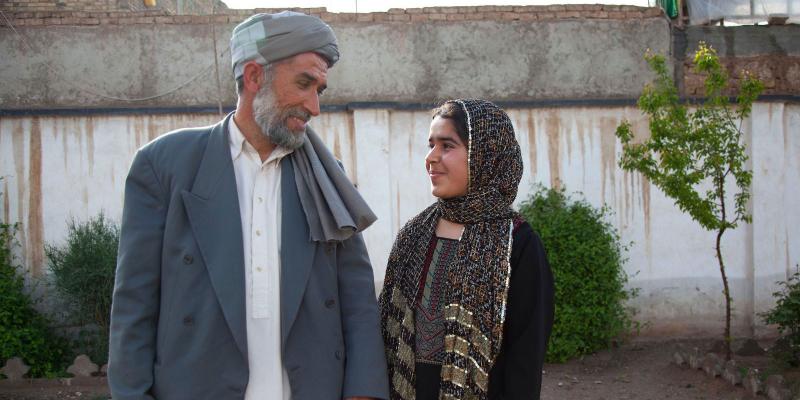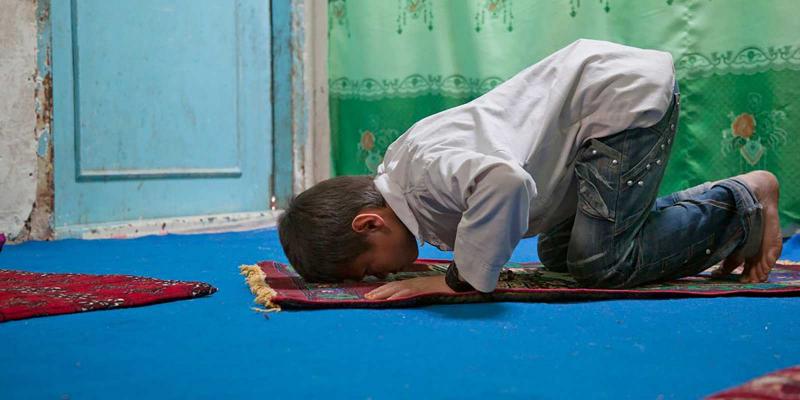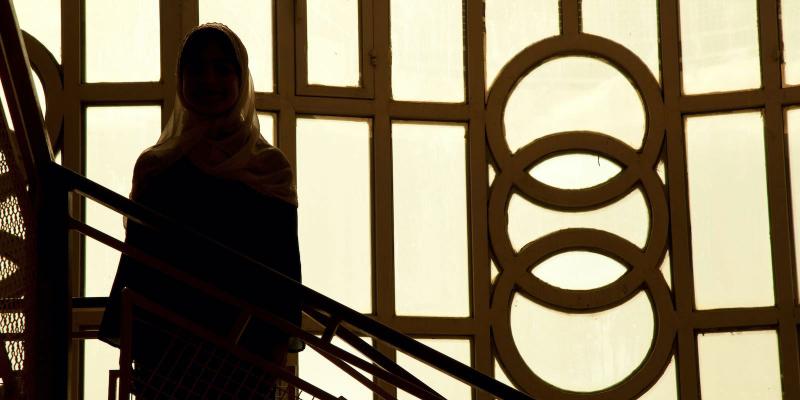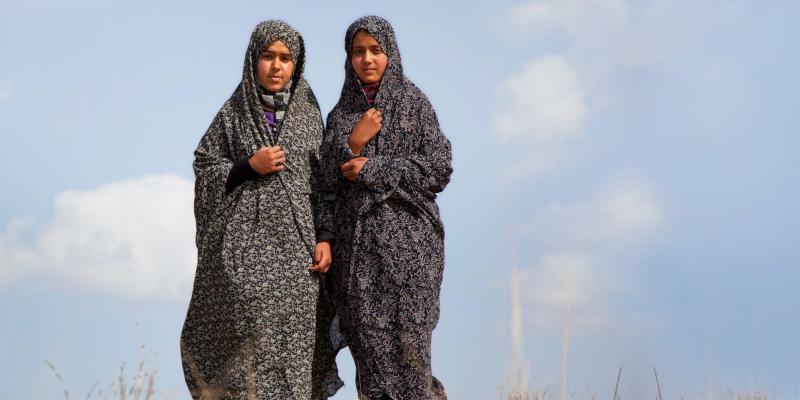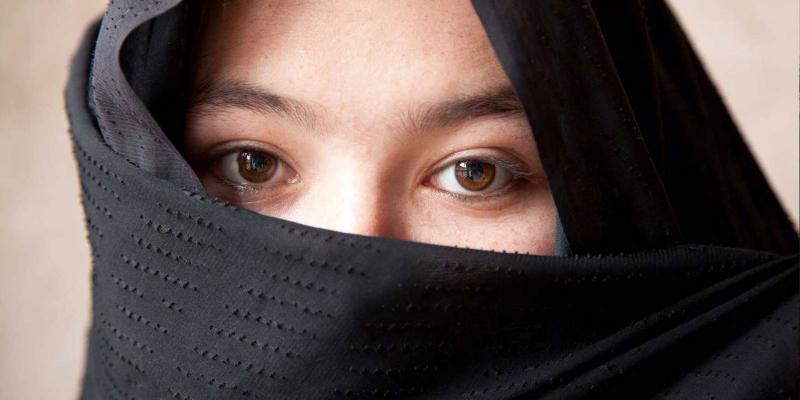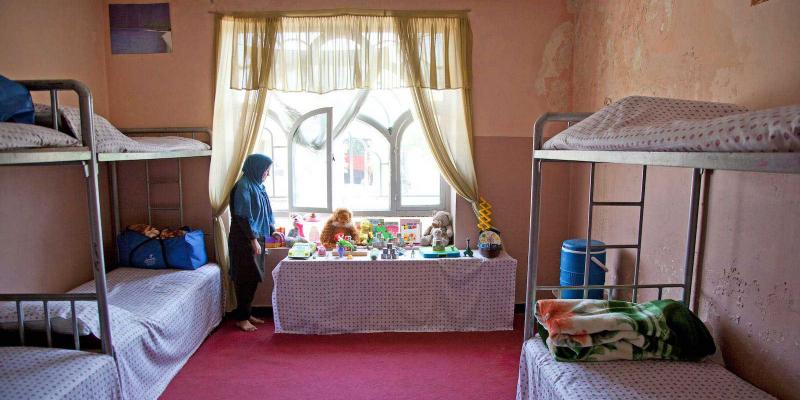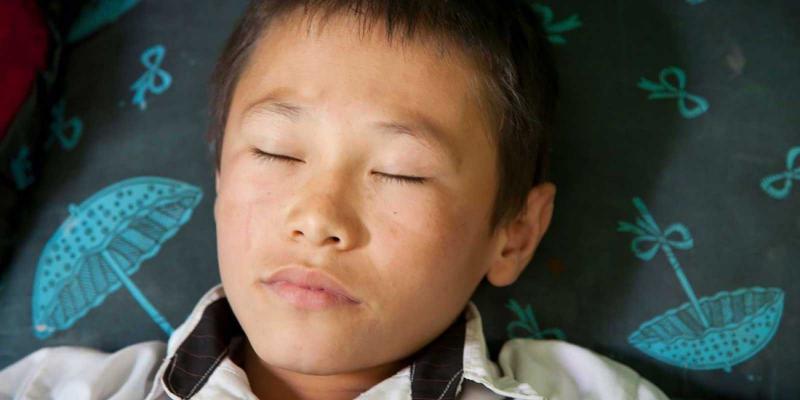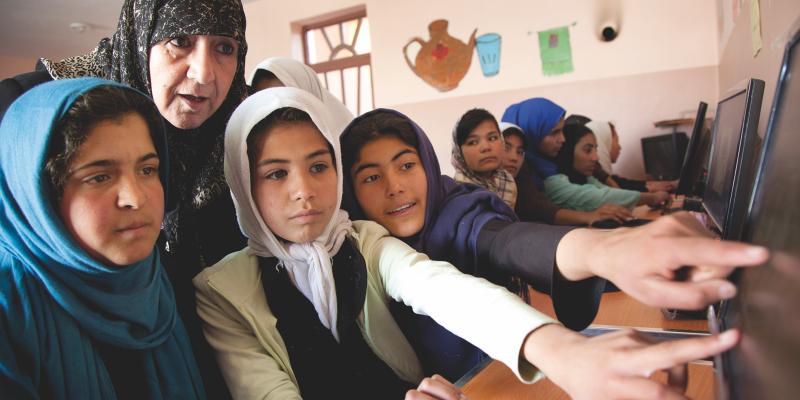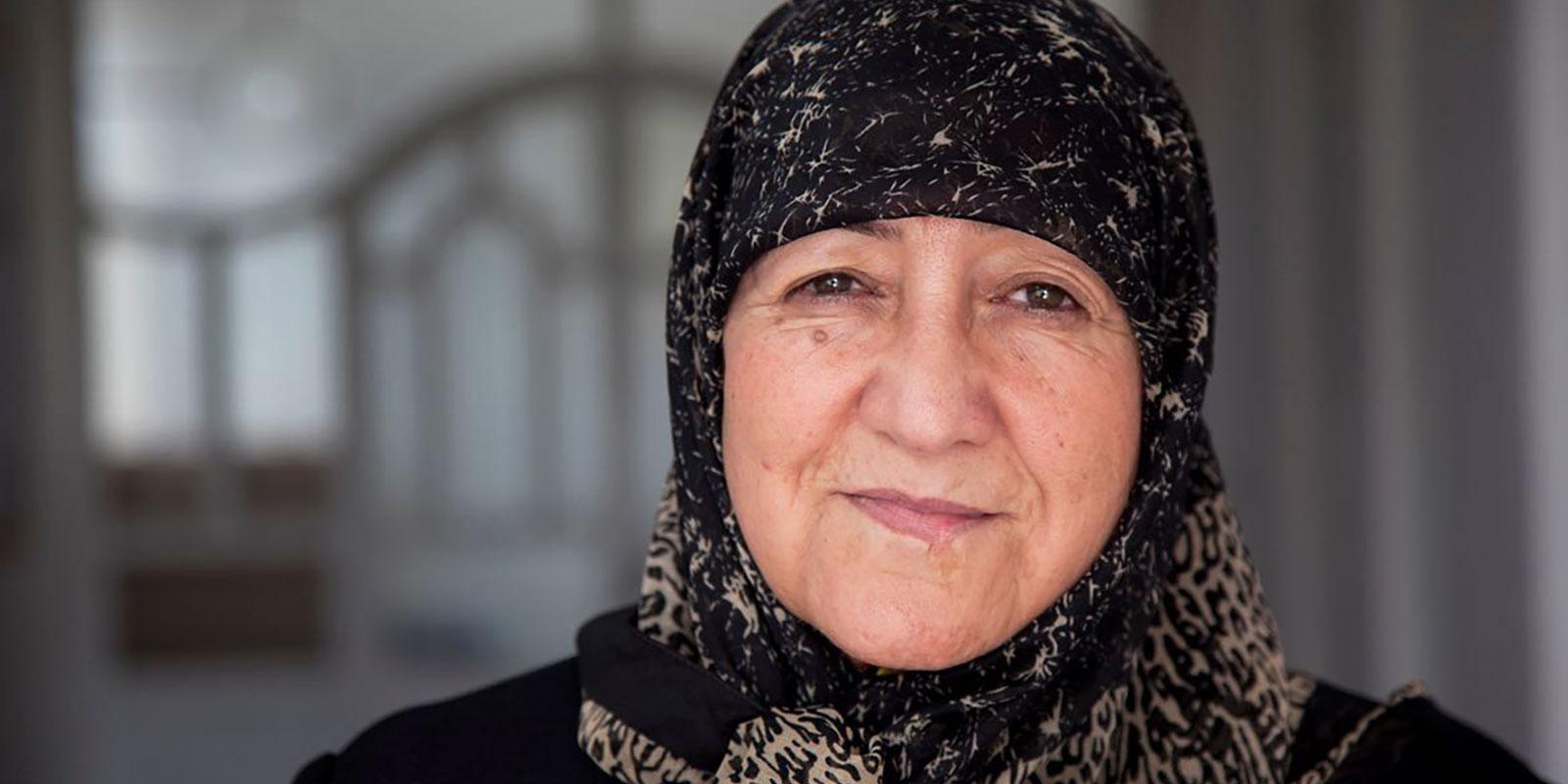
As a child, Sakena Yacoobi is the only girl in her class. She thinks to herself, “Why can’t girls go to school?”
Sakena’s own story begins in Herat, a beautiful old city. Here, Sakena’s father buys and sells houses and fridges, and radios from abroad. Her mother is a housewife. Sakena is their first child, and for a long time, she is an only child. So her father wants her to be both a daughter and a son to him. At the age of four, he sends her to a religious school, where the teacher is a mullah, a Muslim priest.
“I was the only girl in a class of 15 students. I wasn’t shy, but sometimes the boys did tease me. Why should a girl go to school, they asked. I thought: why shouldn’t a girl study? Sometimes the boys hit me. When I complained to the mullah he didn’t tell them off. Instead, he got angry at me! But I found it easy to learn. By the age of six I knew as much as the mullah,” recalls Sakena.
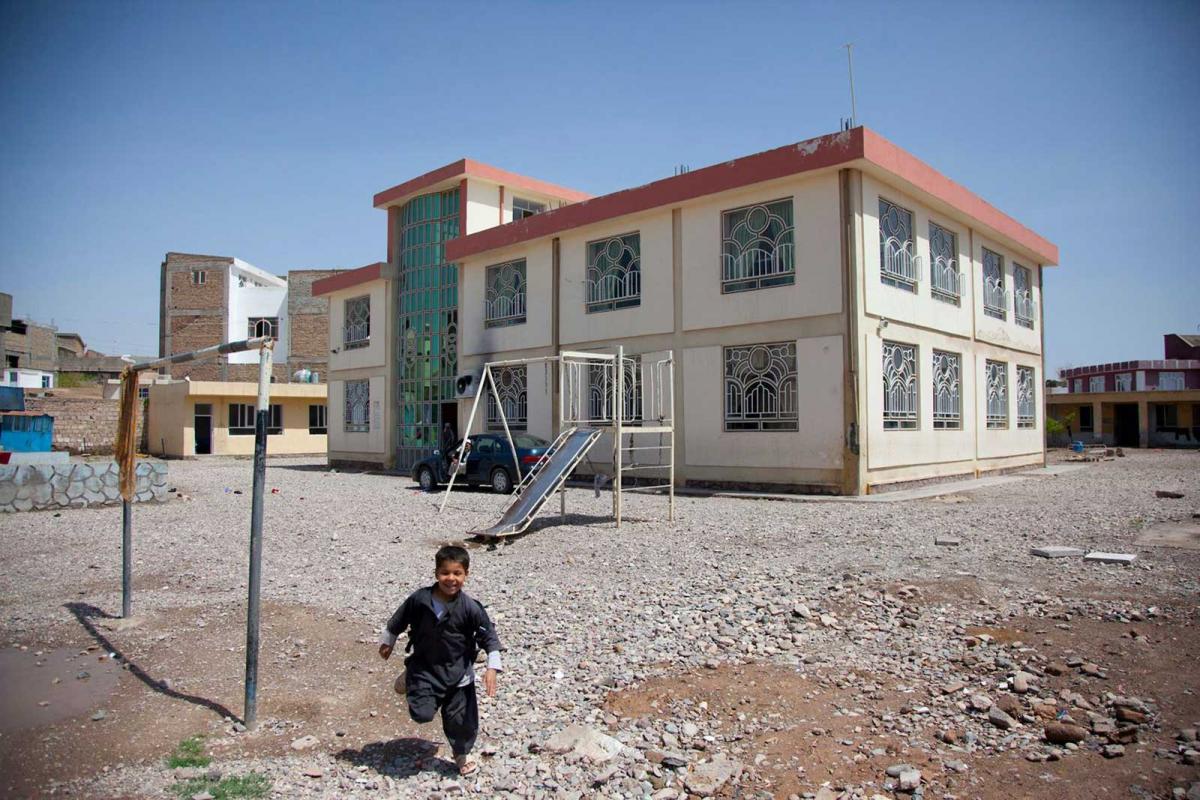
Dressed as a boy
When Sakena is young she wears a little headscarf, which is an Afghan tradition for girls. But sometimes Sakena’s father dresses her up as a boy. “I hid my long hair under a hat. And I wore shirts and shorts. And hey presto! I was transformed into a boy. It was fun! I could join in with the boys’ wild games. We did wrestling, arm wrestling, and fighting. I was big and strong for my age, so I often won.”Sakena’s father took her everywhere with him – on business trips, to dinners, and to parties where only men were allowed. He really wants another child and would love to have a son, but it takes time.
“My mother was pregnant constantly, but the children didn’t survive. Once she nearly bled to death giving birth. The babies were stillborn, or so weak that they didn’t survive more than a couple of weeks. It was awful to see how sad my mother was every time she lost a child that she had carried for nine months. The same thing happened to other women in our district. So I thought: why should so many women and children suffer? There and then I decided to change that!”
Father’s secret
Sakena’s father is strict. After school, it’s time for homework, not playing. Every evening she shows him her homework jotter and he reads, wrinkles his nose, and says, “You can do better! Do it again, do it right!” And she has to start over.One day when Sakena is 10, she shows him her homework as usual, and as usual, she gets the response, “That’s not good enough! Do it again!” But Sakena knows that there is not a single mistake, so she plucks up the courage to reply, “Read it and point out exactly what is wrong!” And she hands the jotter back to her father. He just looks at her, and says in a low voice, “I can’t read.” “And then he turned his face away. I could hear he was crying. It was a shock. I thought my father could do anything, but he was illiterate. In all these years, he had only pretended to correct my homework. And I had let myself be tricked. After that day, he never asked to see my homework again. I never told anyone what had happened. It was our secret. My father didn’t want people to know that he couldn’t read or write.”
Turns down suitors
Sakena often hears her grandmother, aunts and other relatives on her father’s side complain that Sakena’s mother hasn’t given him any sons. They say that she is useless and that Sakena’s father should take a new, younger wife. Sakena can’t stand to hear this. But her father doesn’t want a new wife. He’s happy with the wife he has.Finally, when Sakena is 14, she gets a little brother. By now she is in Year 8 and she takes care of all her father’s business paperwork. She is like his secretary. At school, she sees the other girls leave, one after another. They get married and become housewives, even though they are only children. Child marriage is common in Afghanistan. And Sakena has suitors too.
“I was fat, and not very pretty, but lots of people still wanted to marry me, because I had a good reputation. But my father always asked me, ‘Sakena, do you want to marry this man?’ And I always answered, ‘No father, I want to go to school!’ And my father respected that. He was a good man.”
Coming home to the children
Sakena is the first person in her extended family to graduate from school. After high school, she wants to continue studying, but at this time there is only one university in the whole country. It’s in another city, far from home. The problem is solved when Sakena makes friends with an American family who is visiting Afghanistan. They say that they can take her back to the USA with them to study. Sakena wants to go, but her father ponders the issue for a long time. Letting his daughter study near home is one thing, but letting her disappear off to the other side of the world is another. Finally, he agrees. Sakena is over the moon.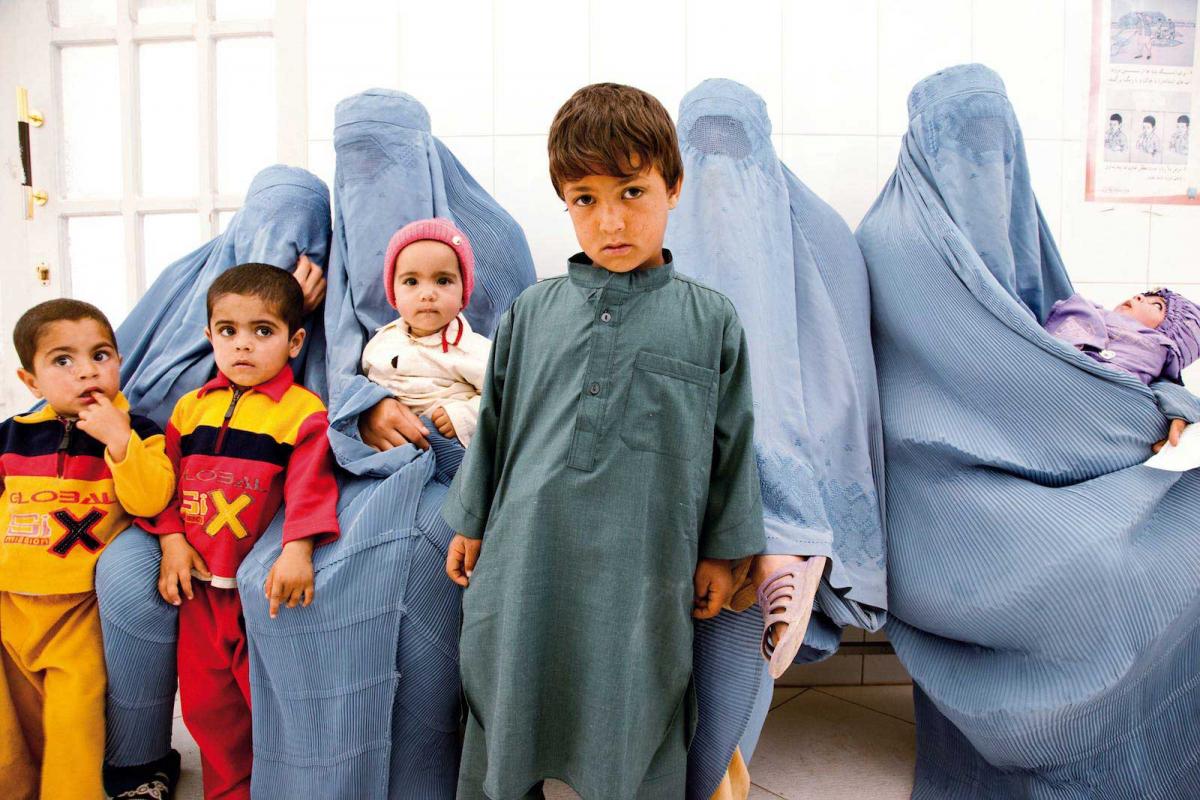
Just as Sakena Yacoobi moves to the USA, war comes to Afghanistan. Cities and villages are bombed, battles are fought in alleyways and on mountainsides. Many are killed or have to flee. After much hardship, Sakena’s mother, father and brother manage to get to the USA. The family is reunited. And the story could have stopped there. But Sakena can’t forget her homeland. She isn’t satisfied to live in peace and safety, while her people suffer. They need schools and hospitals.
“My heart burned for my people. I wanted to help those affected by the war, particularly the women and children. My parents were not pleased with my decision. My mother said, ‘You can’t leave us again. We need to stick together.’ But my father agreed with me. ‘If this is what you want, then it is also God’s will,’ he said.”
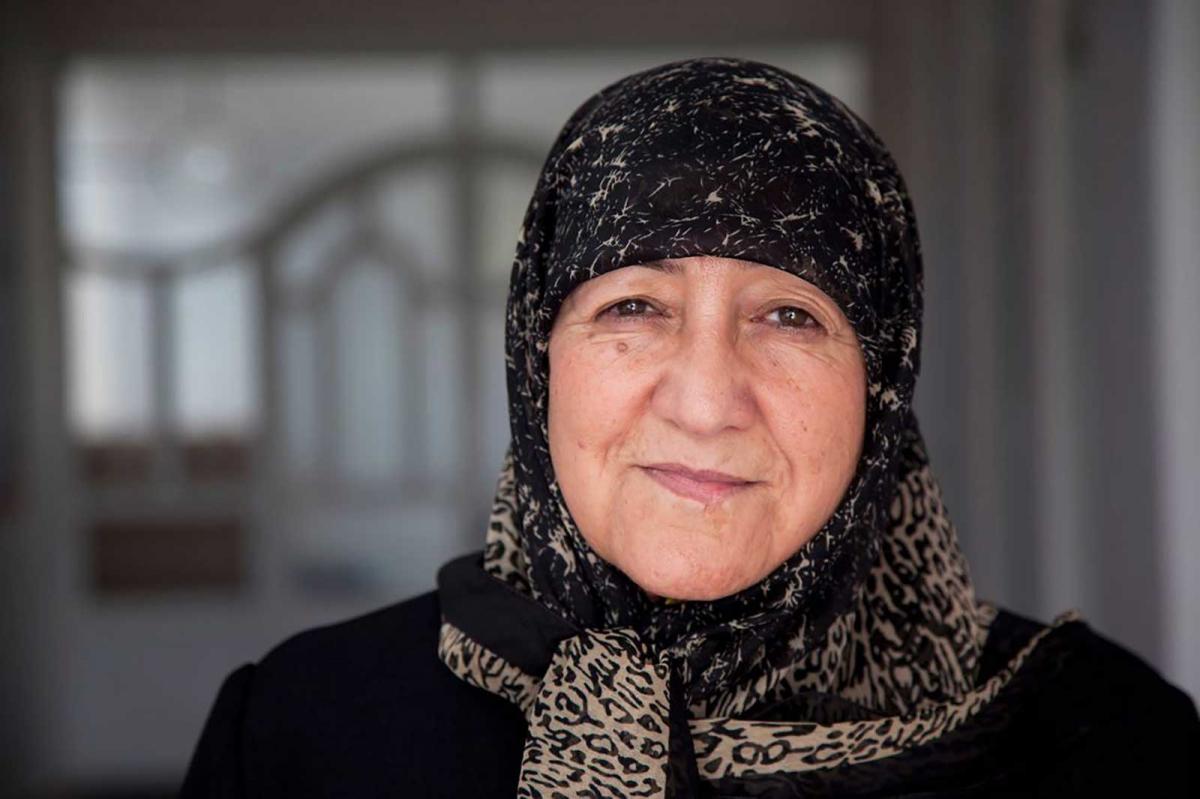
Sakena travels to the Afghan refugee camps, where she gets a job as a manager of a teacher training program. Soon she opens a school for girls. And another. And another. After one year, there are 3000 girls attending Sakena’s schools. The next year, there are 27,000. Sakena also founds clinics and teacher training courses. When the Taliban, who govern Afghanistan at the time, ban girls from going to school, Sakena doesn’t give up. Instead, she opens secret schools for girls. More and more, until there are 80 secret schools. Time passes, and Sakena works around the clock. “I didn’t have any children of my own, but I feel proud and happy when I think of all the children I have helped. Thousands and thousands of Afghan girls. And quite a few boys too. I love them as though they were my own. Children are the future of Afghanistan.”
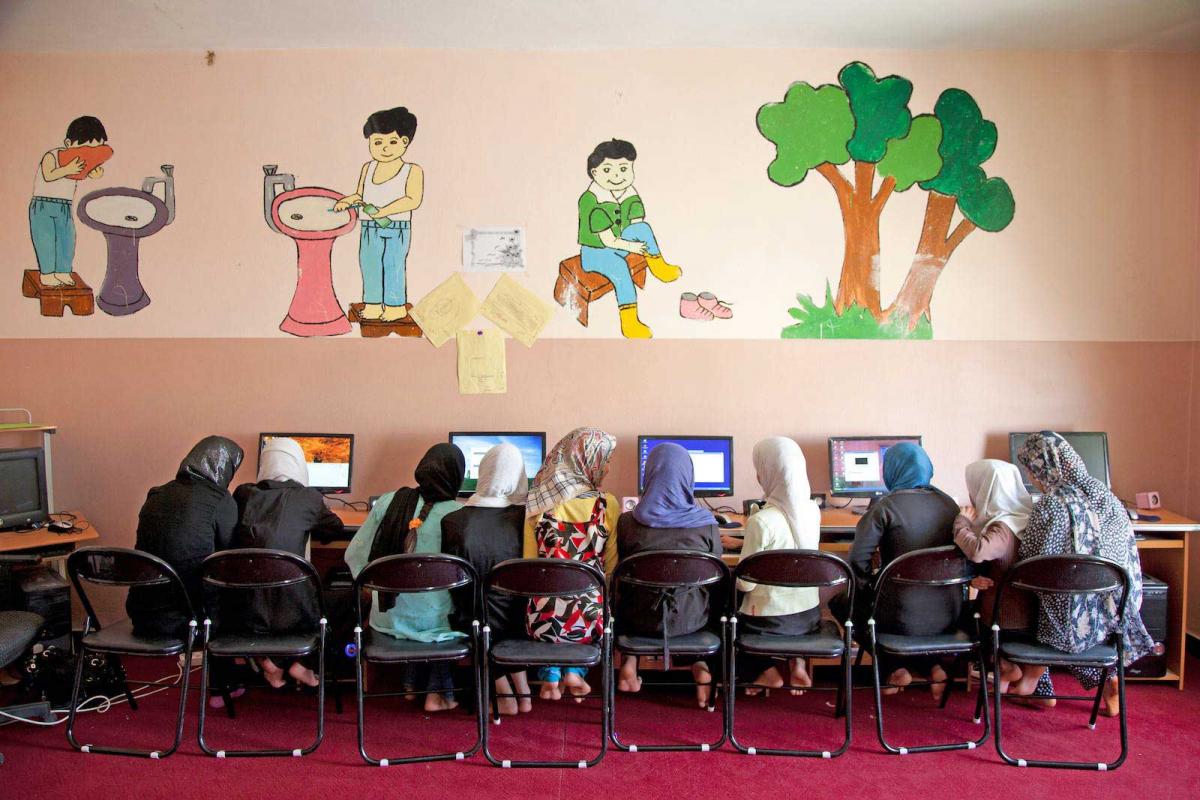
Death threats and bodyguards
Sometimes Sakena gets death threats from men who don’t believe girls should be allowed to go to school. So she gets protection from bodyguards. Sometimes her schools and clinics are closed by armed gangs. So she opens them again, in secret. Sakena Yacoobi never gives up. Her goal is for every girl to be allowed to go to school and learn to read.
“Everyone has a right to go to school.
It’s just as important as eating or breathing. In the USA and Europe, children have computers, video games, and mobile phones. Why should Afghan children not even be able to go to school? It’s not much to ask. All you need is a classroom, a chalkboard, some chalk, and a trained teacher. That’s all that is needed to change the lives of all the children in a whole village. Look at me, I would never have come this far if my father hadn’t let me study.”Text: Jesper Huor
Photos: Makan E-Rahmati
Related stories
Långgatan 13, 647 30, Mariefred, Sweden
Phone: +46-159-129 00 • info@worldschildrensprize.org
© 2020 World’s Children’s Prize Foundation. All rights reserved. WORLD'S CHILDREN'S PRIZE®, the Foundation's logo, WORLD'S CHILDREN'S PRIZE FOR THE RIGHTS OF THE CHILD®, WORLD'S CHILDREN'S PARLIAMENT®, WORLD'S CHILDREN'S OMBUDSMAN®, WORLD'S CHILDREN'S PRESS CONFERENCE® and YOU ME EQUAL RIGHTS are service marks of the Foundation.



